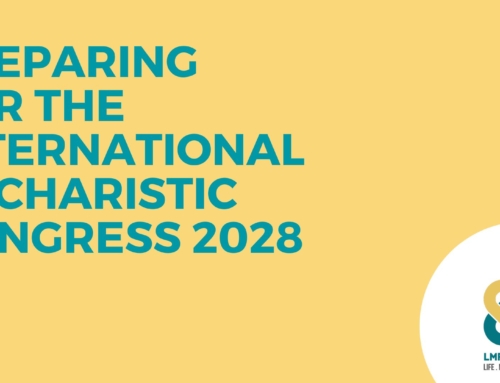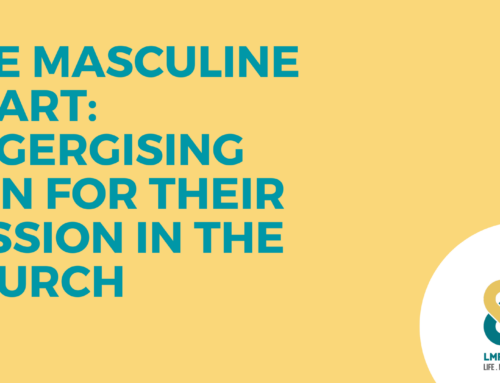Editor’s note: this article explores come of the current debate around the merits of various approaches to sex education. Have a read and make a comment – we’d love to hear from you!
Internet forums have been running hot with discussions among Christians about Elizabeth Smart’s story (Washington Post, May 7, 2013). Her claims that her religious upbringing (Mormon) and abstinence-only education instilled in her such a deep value for virginity and expectations of marital sex, that it made her susceptible to victimisation and abuse. She tells of feeling so worthless after her rape and abduction of nine months that she resisted escape as she believed she was so devalued that there was no point trying to return to the community.
Such stories give fuel to the champions of ‘comprehensive sex education’ (CSE) who justifiably see them as evidence of the failure of ‘abstinence only education’ (AOE) to prepare or protect people from abuse. However, the reality is, that both educational extremes are in error; the liberal approach trivializes the purpose and meaning of sexual love and sanctions sexual experimentation among the unmarried which leaves them vulnerable to physical and emotional injuries that can negatively impact them for life. The abstinence only approach often motivates primarily through fear and so fails to form in the young a commitment to chastity that is based on the right reasons and values.
As evidence of this, Elizabeth Smart recounts how her AOE teacher told them that they were like gum; every time they had sex it was like being chewed and no one likes to rechew old gum.
Other AOE teachers motivate through promises that chastity will be rewarded with marital bliss and amazing sex, what is often called ‘reward sex’. While great sex may be the experience of some couples some of the time, it is unrealistic as a general assumption and sets couples up for disillusionment and strife when the expected marital paradise doesn’t eventuate.
In a provocative article, Rachel Pietka boldly declares that “Christians Are Not Called to Have Amazing Sex” (Rachel Pietka | Relevant Magazine | June 2013). She admonishes Christians to remember God’s design for sex: “Although sex is indeed God’s gift to us, Christians are not directly commanded by God to have great sex.” She notes that “the fact that sexual compatibility does not matter to Christians when choosing a spouse makes the shocking and counter-cultural statement that sex is not our God. It indicates that we are willing to make a commitment to someone with whom we may be sexually incompatible, with whom we may never have good sex, because the purpose of marriage is not pleasure, but formation.”
In regards to the tendency of the AOE movement to promise amazing marital sex to those who wait, Pietka notes that these promises are not only incorrect, “they imply that the purpose of abstinence is good sex, not obedience to God and the cultivation of virtue.” Moreover, the Christian conversation about sex to marrieds implies that good sex and frequent sex is virtually commanded by God. Numerous books by Christian sex therapists reveal “an inferiority complex that wants to compete with mainstream culture’s view of sex rather than modeling a rightly ordered sexual ethic to the world.”
It’s the sexual equivalent to the ‘prosperity gospel’; the parallel to the (erroneous) message that if you give your life to God, then God will make you prosperous. In this case, the message is that if you give your body to Jesus in purity, he will reward you with electrifying marital sex. The biggest problem with this message (apart from the fact that it’s not true), is that it idolises ‘great sex’ making it the goal and litmus test of successful marriage. It has adopted the culture’s values about sex, making the marital embrace about technique and performance. Rather than liberating Christian couples from a puritanical and repressive approach to their sexual relationship, it has made eroticism a new master.
In response to the shortcomings of AOE programs, a new genre of Sex Education is emerging – one that is grounded in science and promotes sexual delay. These programs are so different from some of the Abstinence Only programs that a new name has been adopted to describe them: Sexual Risk Avoidance Programs (SRA). According to Valerie Huber and Greg Pfundstein of the National Abstinence Education Association, these programs are “medically accurate and based on sound public health and behavioral models, all supported by solid methodology and pedagogy.” The authors hasten to note that these are not religious programs, an important feature if they are to have any hope of being adopted into public schools. (Read more: Witherspoon Institute, Not Used Up: here)
Whether it’s the messaging to teens and singles or to couples, it’s important to be grounded in truth – a truth that can be supported by both Catholic theology and science. No matter how well-intentioned an educator may be, exaggerating the benefits or consequences of sexual behaviour is both unproductive and disingenuous. Marital sex is about intimacy and communion. It is the physical expression of a couple’s commitment to love, live, celebrate, suffer, grow and eventually decline together for life. Sexual fulfillment lies not in jaw-dropping orgasms and unbridled pleasure, but in generous and self-sacrificial service in body and soul to our beloved. Its purpose is not sexual athleticism but life-giving union – which of course is always deeply satisfying.
When a couple’s sex life fails to satisfy, it is more often about the failure of their embrace to connect them in a communion of body and soul than it is about a physiological malfunction or fundamental incompatibility. And while some challenges that couples encounter in their sexual relationship can be treated with medical interventions, often these fail to address the deeper and more difficult issues associated with their emotional intimacy. The cultural emphasis on extreme eroticism distracts many from focusing on the right issues.
Questions for discussion:
- Is it justifiable to misrepresent the benefits of chastity to young people in order to protect them from the harms of sexual promiscuity?
- What messages are effective in ‘cutting through’ the cultural noise and actually motivating young people to choose chastity?
- Is there such a thing as ‘sexual incompatibility’ and if so, what does it actually look like?




